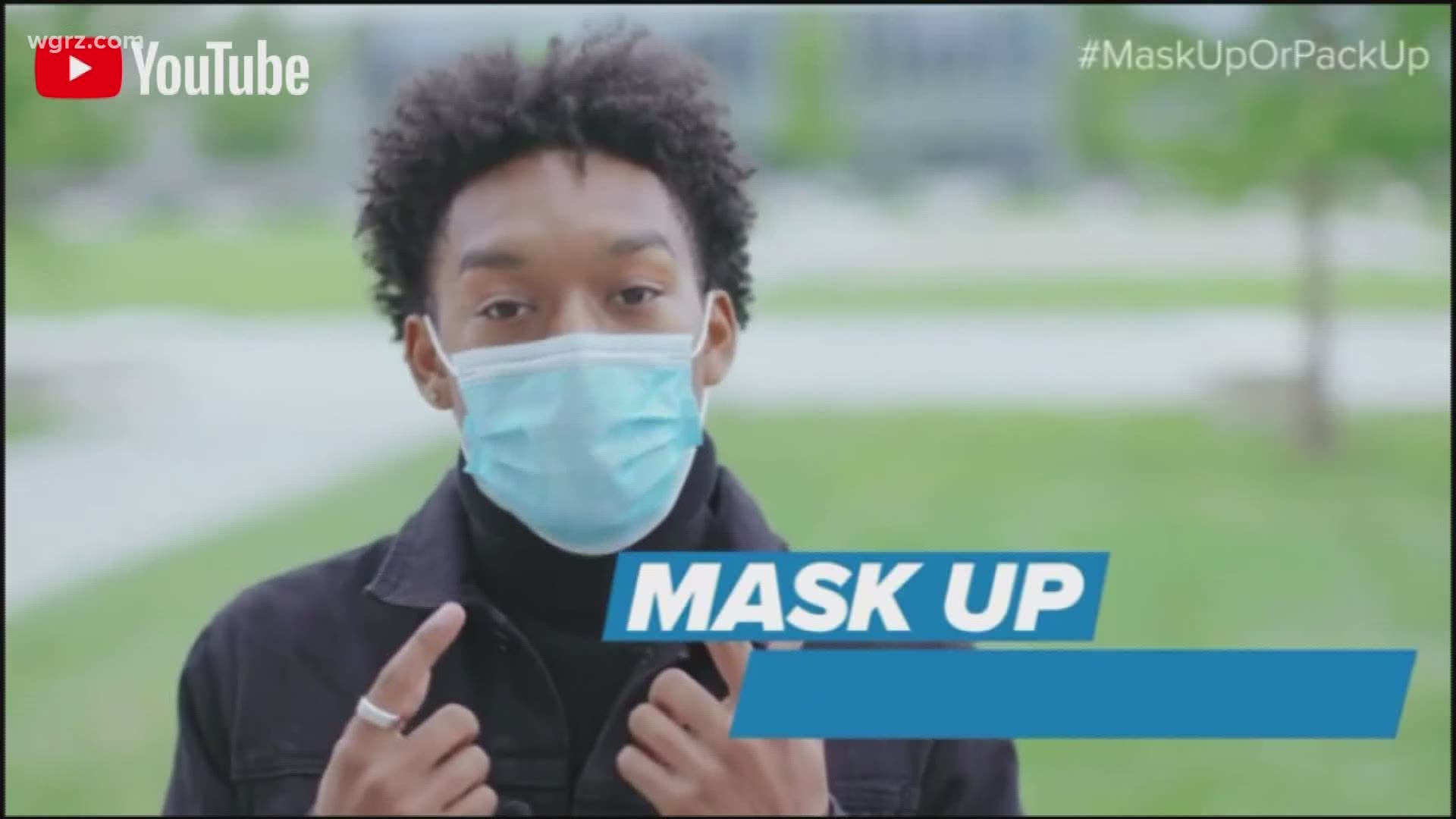BUFFALO, N.Y. — The State University of New York (SUNY) system has announced its COVID-19 procedures and plans for the spring 2021 semester.
Notably, any student that will be on campus in any capacity must quarantine for seven days and then undergo a test at the start of the semester. There will also be no spring break and students won't return to class until Feb. 1, 2021.
"I have talked with countless students since August who have made tremendous sacrifices so that they can stay on campus and learn. Our students have done a remarkable job given the circumstances," said State University of New York Chancellor Jim Malatras.
Here's how it will work: any student who plans on living on campus, going to in-person classes or using any campus resources such as the library or dining hall will need to do a precautionary quarantine for seven days before they come back to campus.
The student will need to undergo a diagnostic test in the three days before they arrive on campus, or get tested through their campus within five days of arriving on campus.
SUNY says it has the ability to process around 200,000 diagnostic tests per week.
The only exemption to testing is for students who have proof of a positive COVID-19 diagnostic within three months of returning.
"This aggressive strategy gives us the best chance to return our students once again to classrooms in early 2021. But as we know, this is a fluid situation so we will continue to adapt and be flexible as issues emerge," Malatras added.
In-person instruction won't be allowed to resume until Feb. 1, unless for programs that have been given exemptions, such clinical practicums and research. Any students returning for these programs will have pooled surveillance testing.
While spring break will be canceled to limit the spread, colleges and universities within the system will be allowed to offer midweek single-day reading days during the semester. Students will be encouraged to stay on campus during these days.
Masks will also now be required at all times in classrooms, conference rooms and all public spaces, even when social distancing is possible.
Next semester, in many ways, will be much like the fall. Campuses will still be offering a variety of COVID-19 resources for students, including mental health services. The SUNY system will continue to track cases on the public case tracker and colleges/universities that have a positive test rate of over 5 percent, or more than 100 active cases within a two week period, may see in-person pauses.
Students who violate SUNY COVID-19 rules will still be subject to academic and housing suspension, and could possibly be dismissed from the college for not complying. Student organizations could also be permanently banned for not following the rules.
“We’ve demonstrated this past fall that by implementing an aggressive strategy to manage COVID, students can safely return to campus," Malatras said. "These additional efforts — testing all students upon return, ongoing testing throughout the semester, pushing out the start of the spring semester, and mandatory masks at all times, coupled with uniform enforcement and compliance—illustrates that SUNY is setting a nationwide standard for controlling COVID-19 in the weeks and months to come."

